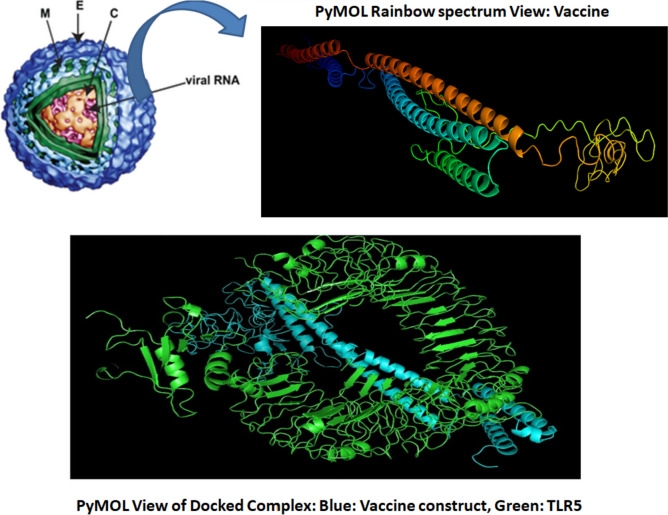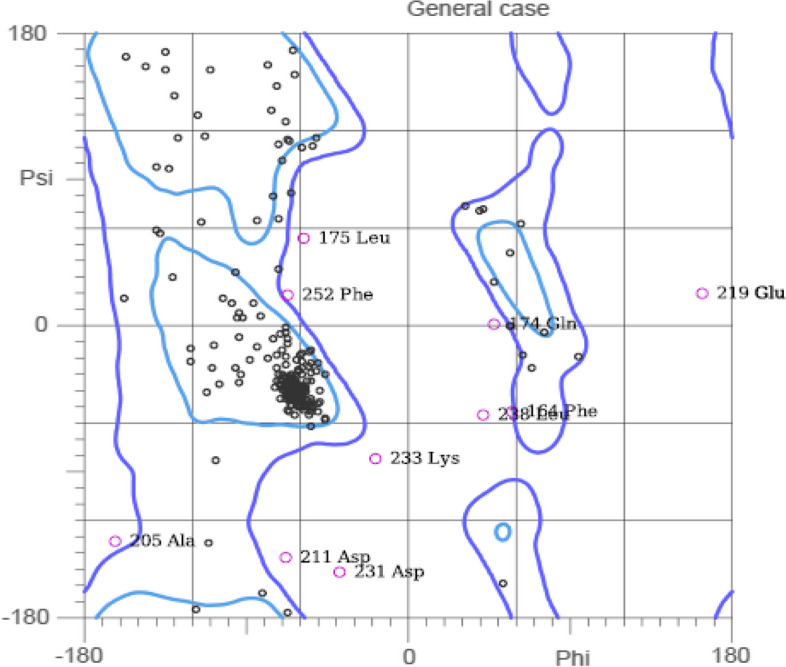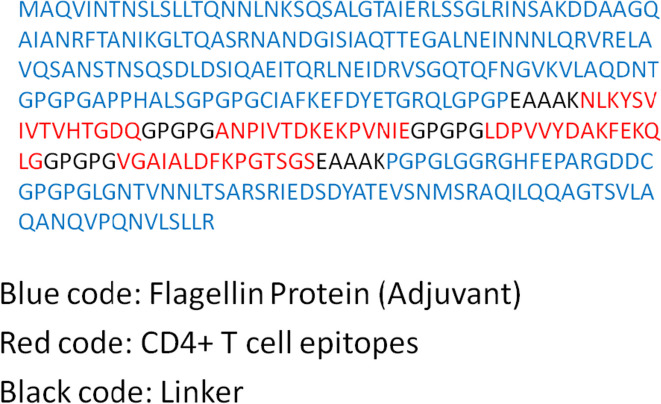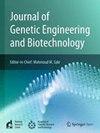免疫信息学研究探索登革热(DENV-1)蛋白组,利用CD4+表位设计多表位疫苗构建。
IF 2.8
Q3 Biochemistry, Genetics and Molecular Biology
Journal of Genetic Engineering and Biotechnology
Pub Date : 2023-12-01
DOI:10.1186/s43141-023-00592-9
引用次数: 0
摘要
背景:免疫信息学是一门融合免疫学、生物信息学和计算生物学来研究免疫系统的新兴交叉学科。在这项研究中,我们应用免疫信息学方法来探索登革热蛋白质组,以设计一种多表位疫苗结构。方法:我们使用现有的数据库和算法来预测登革热蛋白的潜在表位,并使用生物信息学方法来识别最有希望的表位。然后,我们使用分子模型开发了一个多表位结构,可以用作潜在的疫苗。本研究结果表明,免疫信息学是探索和设计登革热等传染病潜在疫苗的有力工具。结果:在这里,我们发现了四个CD4+表位NLKYSVIVTVHTGDQ、ANPIVTDKEKPVNIE、LDPVVYDAKFEKQL和VGAIALDFKPGTSGS用于设计疫苗构建。该疫苗结构与TLR5对接。RMSD值提示,TLR5的对接复合体与疫苗构建物具有稳定的相互作用,可诱导宿主产生免疫原性效应。结论:此外,我们的研究为在DENV疫苗设计中使用免疫信息学方法提供了概念证明。该疫苗可有效治疗DENV病毒感染患者。本文章由计算机程序翻译,如有差异,请以英文原文为准。



Immunoinformatics study to explore dengue (DENV-1) proteome to design multi-epitope vaccine construct by using CD4+ epitopes
Background
Immunoinformatics is an emerging interdisciplinary field which integrates immunology, bioinformatics, and computational biology to study the immune system. In this study, we apply immunoinformatics approaches to explore the dengue proteome in order to design a multi-epitope vaccine construct.
Methods
We used existing databases and algorithms to predict potential epitopes on dengue proteins and used a bioinformatics approach to identify the most promising epitopes. We then used molecular modelling to develop a multi-epitope construct which could be used as a potential vaccine. The results of this study demonstrate that immunoinformatics is a powerful tool for exploring and designing potential vaccines for infectious diseases like dengue.
Results
Here, we found four CD4+ epitopes NLKYSVIVTVHTGDQ, ANPIVTDKEKPVNIE, LDPVVYDAKFEKQL, and VGAIALDFKPGTSGS that were used to design vaccine construct. The vaccine construct docked with TLR5. RMSD values suggest that docked complex of TLR5 and vaccine construct have putative stable interaction to induce immunogenic effects on host.
Conclusions
Furthermore, our study provides a proof of concept for the use of immunoinformatics approaches in DENV vaccine design. This vaccine can be effective in treating patients infected with DENV virus.
求助全文
通过发布文献求助,成功后即可免费获取论文全文。
去求助
来源期刊

Journal of Genetic Engineering and Biotechnology
Biochemistry, Genetics and Molecular Biology-Biotechnology
CiteScore
5.70
自引率
5.70%
发文量
159
审稿时长
16 weeks
期刊介绍:
Journal of genetic engineering and biotechnology is devoted to rapid publication of full-length research papers that leads to significant contribution in advancing knowledge in genetic engineering and biotechnology and provide novel perspectives in this research area. JGEB includes all major themes related to genetic engineering and recombinant DNA. The area of interest of JGEB includes but not restricted to: •Plant genetics •Animal genetics •Bacterial enzymes •Agricultural Biotechnology, •Biochemistry, •Biophysics, •Bioinformatics, •Environmental Biotechnology, •Industrial Biotechnology, •Microbial biotechnology, •Medical Biotechnology, •Bioenergy, Biosafety, •Biosecurity, •Bioethics, •GMOS, •Genomic, •Proteomic JGEB accepts
 求助内容:
求助内容: 应助结果提醒方式:
应助结果提醒方式:


